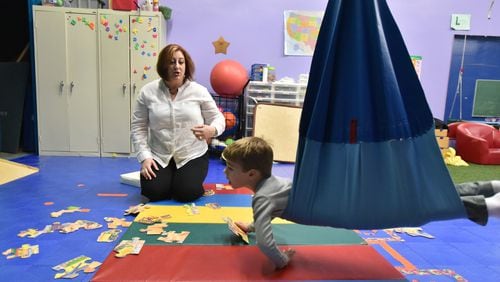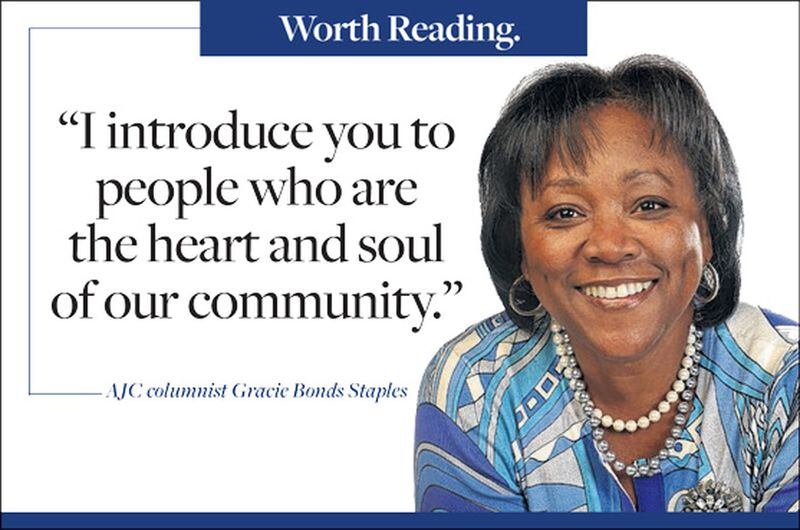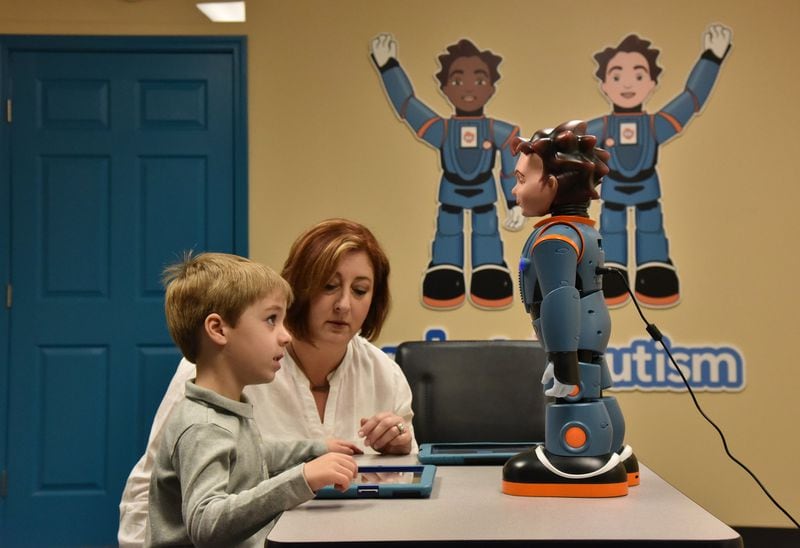Long before Children’s Therapy Works opened its doors in 1998, Shelley Margow could sense when a child’s brain wasn’t properly integrating the onslaught of information it was receiving.
They were anxious, prone to tantrums and unable to perform to their potential in the classroom, issues parents of children with developmental disabilities lived with every day but had no idea how to fix.
At their core, Margow figured, kids didn’t feel safe. The question for her was how to fix that.
Instead of the standard two sessions of therapy a week, intensive occupational therapy for three to five hours a day, five days a week was her answer.
Because she knew the research showed the brain changes occurred with repetitive, interactive, play-based therapy, Margow focused on facilitating play using swings, balls and games to help the child experience movement, touch and language in a safe space. As the sessions progressed, the child moved from relying on the therapist to exploring the environment and independently learning developmental skills.
Before long, she was having such good results, parents began asking her to start a school.
Margow, of course, was an occupational therapist. Not an educator.
She dismissed the idea.
Then in 2010, when two of her clients were kicked out of school for behavioral issues, she was forced to rethink her response.
RELATED: Infants’ eye contact a clue to autism
“They were just little kids,” Margow recalled recently. “That’s when I went, well, there is nowhere else for them to go. Let’s give it a shot.”
That year, with just two kids, she and her husband opened Let’s Learn Inc., and within three months, kids who didn’t even have the social and emotional skills to attend a birthday party were learning how to learn for the first time in their lives.
Margow applied for and received accreditation from the Georgia Accrediting Commission in 2012 and has never looked back.
And though Let’s Learn Inc. is still small, with no more than a dozen students at any one time, parents swear Margow’s work with their children changed their lives. For the better.
“Without them, I don’t know where we would be,” said Jeanie Crowell of Woodstock.
A social worker referred Crowell to Children’s Therapy five years ago when she couldn’t find a place for her daughter Ashley.
Ashley, now 12, has a genetic brain disorder known as neurofibromatosis, attention deficit hyperactivity disorder, and is developmentally delayed.
“When she first went there, her behavior was out of control,” Crowell said. “She was screaming, fighting and kicking. She wouldn’t sit and focus to do anything. I was having to go to school two, sometimes three times a week because of her behavior.”
That soon changed at Let’s Learn.
“The one-on-one attention she got there and the outdoor play they provided with the animals made the difference,” Crowell said. “All of that was therapeutic for her.”
RELATED: How a dog was boy’s best friend in dealing with fetal alcohol syndrome
Ashley returned to public school last year, has had no behavioral issues and is considered a mostly A student.
Margow has known since she was 6 working alongside her grandmother at shelters for the mentally ill in her native South Africa that she wanted to do this work.
When a friend suggested she’d be a great occupational therapist, she started volunteering at a group home for kids with cognitive delays and knew for sure that was her true calling.
In 1989, she graduated from high school and headed to the University of Witwatersrand in Johannesburg, where four years later she earned a degree in occupational therapy.
Margow arrived in America the following year and worked at a rehabilitation hospital, where she met her husband, Andy Margow.
They were married in 1995 and, in 1996, moved to Atlanta, where Margow started work at Egleston Children’s Hospital, now Children’s Healthcare of Atlanta at Egleston.
“I learned a lot there and am very grateful for the experience, but I wanted to practice a more intensive, integrated approach,” she said. “I wanted a more holistic private practice.”
In 1998, she and Andy opened Children’s Therapy in a Roswell business park off Alpharetta Highway.
Today Margow, who has since earned a master’s degree and a doctorate in occupational therapy from Boston University, operates two clinics — one in Roswell and another in Cumming, where her staff sees as many as 200 kids a week for therapy.
RELATED | Cumming mother uses reality TV to raise awareness about autism
What makes Children’s Therapy unique?
“We use evidence-based neurological programming,” she said.
And more recently, they added a social component that includes Milo, a facially expressive humanoid robot changing the lives of kids with autism.
“When parents look at their children, they are interested in why things are happening. They want results and outcomes,” she said. “They want them to have one successful play date, to go to the grocery store without having a meltdown.”
While 85 percent of communication is nonverbal, children with developmental disabilities such as autism struggle to read nonverbal cues like facial expressions, voice tone, intonations and accents.
Milo removes that kind of extraneous information so that children can relate to the words he uses, take the information in slowly and then practice it so it becomes innate in their daily lives.
“No other tool does that as quickly and effectively as Milo,” Margow said.
In the end, she and her staff help children live more normal lives. Nonverbal kids start to speak. Kids once given to tantrums become cooperative. And families, stressed by the unknown, find peace.
Find Gracie on Facebook (www.facebook.com/graciestaplesajc/) and Twitter (@GStaples_AJC) or email her at gstaples@ajc.com.
About the Author









